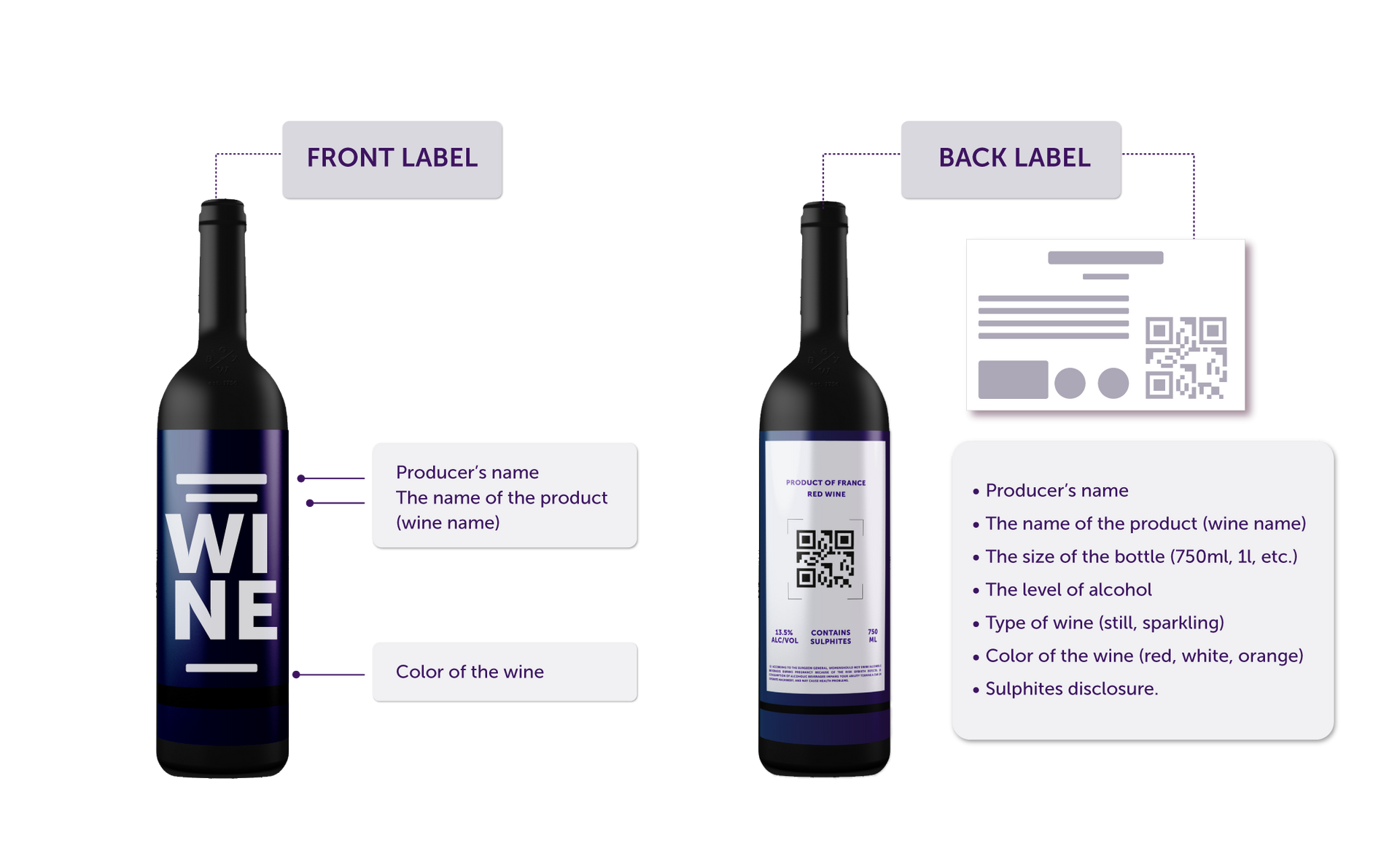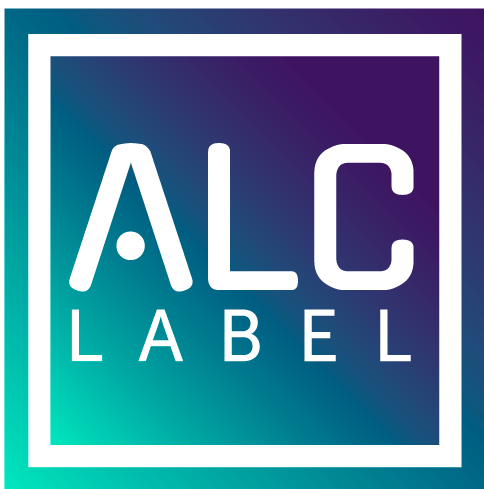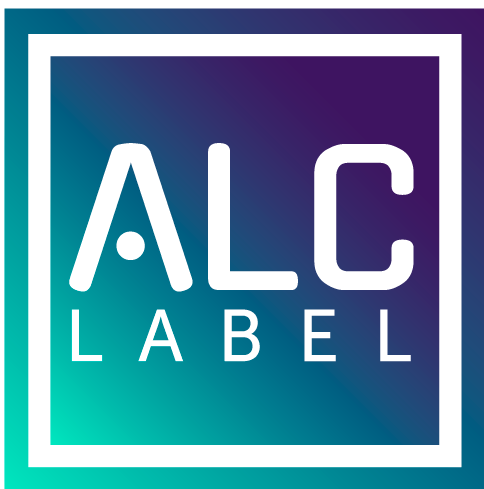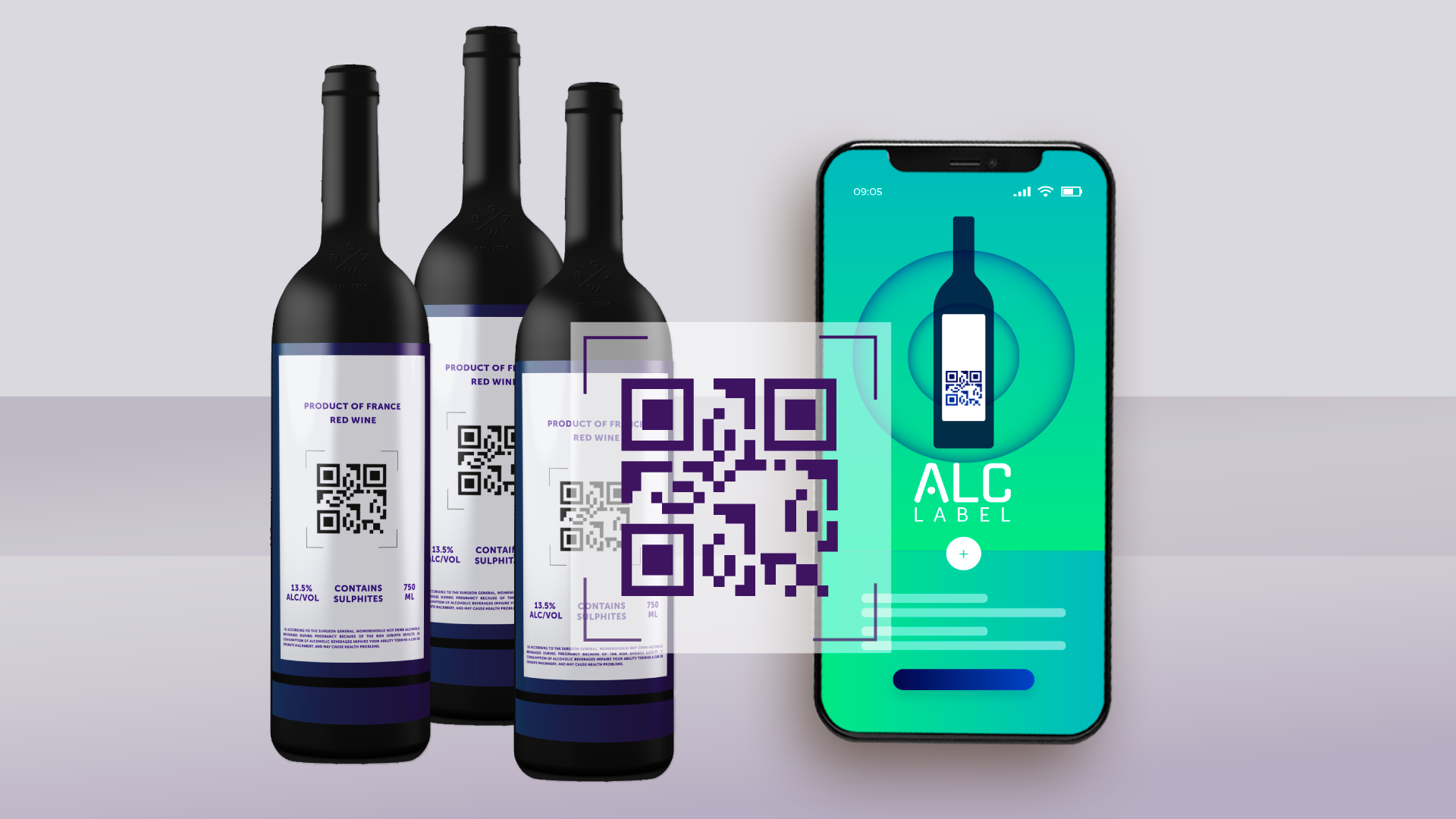Blockchain and Smart Labels: Revolutionizing Product Authentication and Consumer Engagement
Did you know that the global market for smart labels is projected to reach $31.4 billion by 2027? This rapid growth reflects the increasing demand for smart labels that offer advanced tracking and authentication solutions across various industries. As this technology evolves, Blockchain is emerging as a powerful tool to enhance its capabilities and security, creating a synergy that promises to transform supply chain management, product authentication, and consumer engagement through innovative solutions.
“Blockchain and Smart Labels” explores the convergence of these two innovative technologies, examining how their combination addresses longstanding challenges and unlocks new opportunities. By integrating Blockchain with smart labels, businesses can achieve unprecedented levels of transparency, traceability, and trust throughout their supply chains and in their interactions with consumers, assuring customers of the authenticity and origin of their products.
SECURE
RELIABLE
TRANSPARENT
DECENTRALIZED
As we delve deeper into this topic, we’ll explore case studies, technological challenges, and future prospects of blockchain-enabled smart labels across various sectors. This integration represents not just an incremental improvement over the traditional labels but a paradigm shift in how we track, verify, and interact with products in an increasingly complex global marketplace.
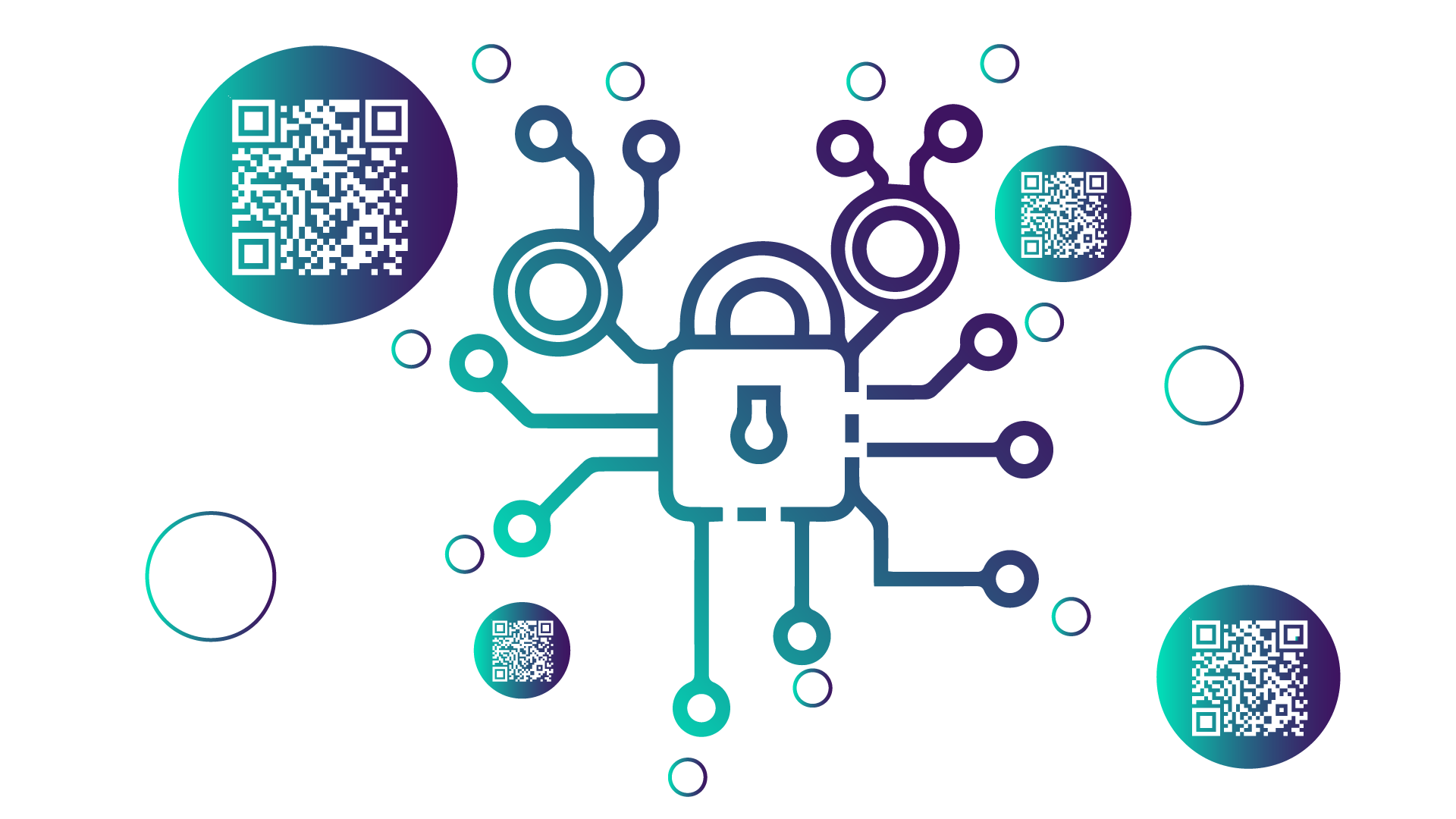
What are the benefits of Blockchain and Smart Labels?
Applying Blockchain technology, product data, and smart labels offer significant benefits for your brand. Consumers are increasingly demanding more provenance information, which offers transparency, particularly in regard to food safety, and this demand is expected to grow. These technologies also enhance operational efficiency by optimizing inventory management and facilitating real-time tracking. Below, we will tell you about 7 of them.
- Drive greater transparency
- Validate credentials and certifications
- Improve trust and your relationship with your customers
- Reduce wine counterfeiting
- Drive loyalty and customer engagement
- Cost-effectiveness of smart labels
- Add extra value to your clients
- Enhanced Traceability
- Efficient Recall Management
- Streamlined Supply Chain Operations
Let’s dive into each one of the Top 10 benefits.
1. Drive greater transparency
Blockchain applications and smart tags offer unprecedented transparency for customers. For instance, AgriDigital, a blockchain-based platform, allows consumers and producers to track products throughout the supply chain, including their storage conditions and transport conditions. This is particularly crucial in the food and beverage industry, where consumers demand detailed provenance information.
Case Study: Greenfence, another blockchain platform, enables companies to identify and certify the people, processes, and locations involved in a product's production. This level of transparency is especially valuable in the wine industry, where authenticity and origin significantly impact a product's value.
2. Validate credentials and certifications
Blockchain technology is set to revolutionize product certification verification. Traditional methods, such as paper banderoles on wine bottles, are becoming obsolete due to their vulnerability to counterfeiting. With the blockchain ledger, all certifications and credentials can be authenticated and confirmed by the issuing authority, ensuring the integrity of the information.
3. Improve Trust and Customer Relationships
The non-repudiation feature of Blockchain makes it virtually impossible for end users to forge information recorded from data stored on the ledger. This creates an unbroken chain of custody for products, significantly enhancing consumer trust.
Case Study: As Oliver Betz, general manager of SAP Innovative Business Solutions, notes, "The label supports the consumer's need to know and reinforces their faith in the brands they trust." This is particularly important in industries like fine wines, where traditional label and provenance directly affects value and consumer confidence.
4. Reduce wine counterfeiting
Smart labels combined with blockchain technology provide a powerful tool to combat product fraud. In the wine industry, for example, these technologies can provide consumers with crucial data such as the date and place of packaging, winery name, and wine components.
Case Study: While not a perfect solution, this approach significantly reduces the risk of counterfeiting, especially post-production. Technology helps ensure that what consumers are drinking is 100% authentic, a critical factor in the alcohol industry where counterfeiting has had a significant and persistent impact.
5. Drive Loyalty and Customer Engagement
Some innovative companies are using smart labels to create unique customer engagement opportunities.
Case Study: Wine producers have implemented peel-and-reveal QR code labels that, when scanned, deposit information into a CRM database. This allows for personalized loyalty programs, such as the one offered by REM Loyalty, where customers can earn rewards based on their purchases and redeem them for various benefits, including gift cards, travel, or even transfers to friends and family.
6. Cost-Effectiveness of Smart Labels
While the initial production cost of smart labels may be higher than traditional labels, they offer long-term cost savings. Digital modifications to the label and product information, such as price changes, can be made without the need to produce new physical labels.
7. Add Extra Value for Clients
Smart labels, powered by Blockchain, allow brands to offer additional content and experiences to consumers.
Case Study: Wineries can use smart labels to share videos about their history or the story behind a particular wine name. They can also offer exclusive discounts to loyal customers who scan the QR codes on the smart label tags, creating a more engaging and personalized customer experience.
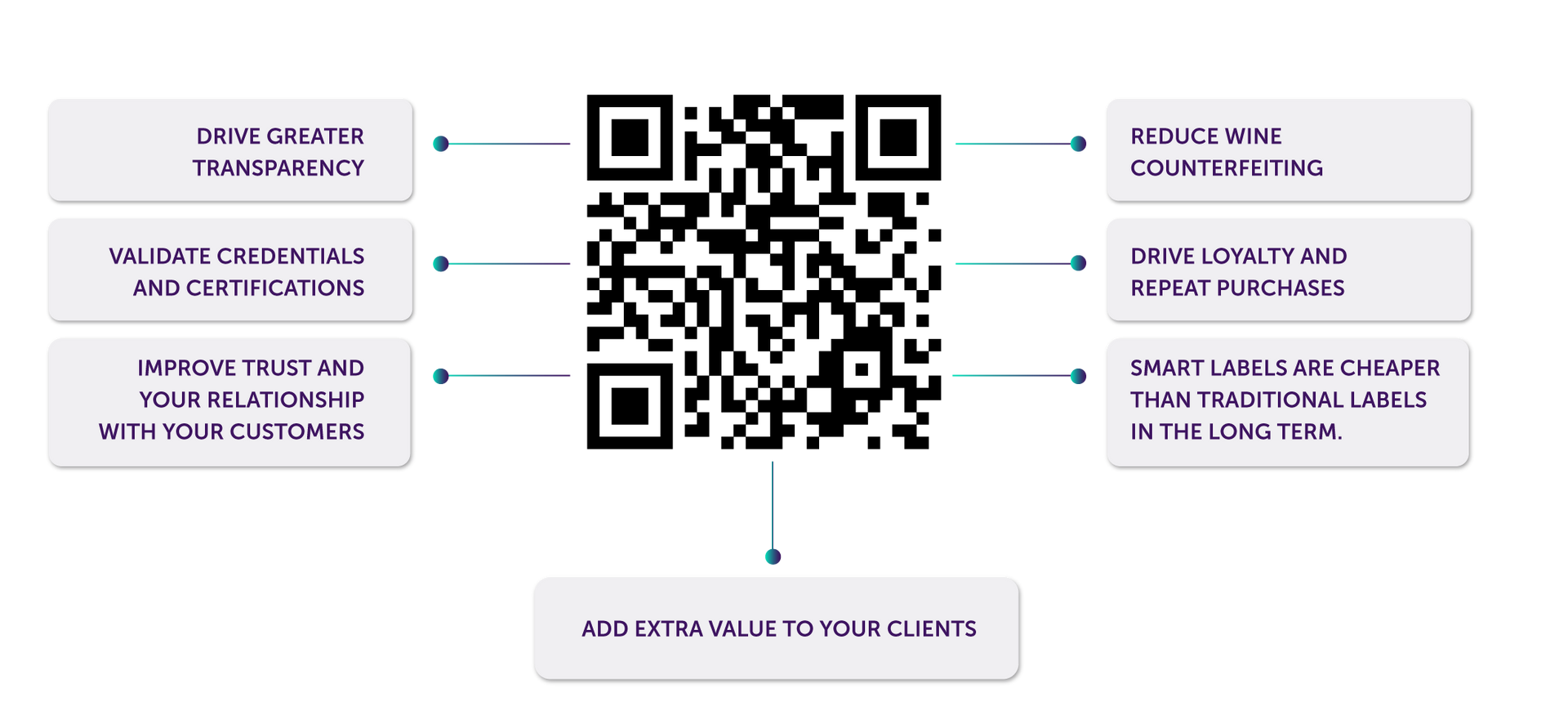
8. Enhanced Traceability
Blockchain's immutable ledger, combined with smart labels, allows for highly secure, tamper-proof tracking of products from the manufacturer to the end user in real-time. This is particularly valuable in industries like pharmaceuticals and food, where provenance is critical.
9. Efficient Recall Management
In the event of a product recall, the combination of Blockchain and smart labels enables rapid, precise identification and tracking of affected items, minimizing costs and potential harm. Gone should be the days of manually registering lot numbers with a regulator and looking to identify where in the distribution network the product in the named lot is located.
10. Streamlined Supply Chain Operations
Real-time data from smart labels, securely stored and shared via Blockchain, can optimize inventory management, reduce waste, and improve overall supply chain efficiency in the logistics industry.
Final thoughts
Applying Blockchain technology and digital product labels to the production of goods by your company, such as food products, will allow you to generate a much more transparent and reliable image for your consumers, giving you a higher rate of customer engagement. This is because, thanks to the possibility of storing data in these digital technologies, they will be much more informed about your product's journey and the processes carried out. That enables them to make more informed purchasing decisions.
However, the benefits of implementing cutting-edge technology do not end there. New technologies, such as Blockchain, offer the opportunity to track your products and assure customers they know where they are in the supply chain and how many you have in stock. This will not only help supply chain specialists implement more efficient strategies but, ultimately, give you greater control over your products and future.
